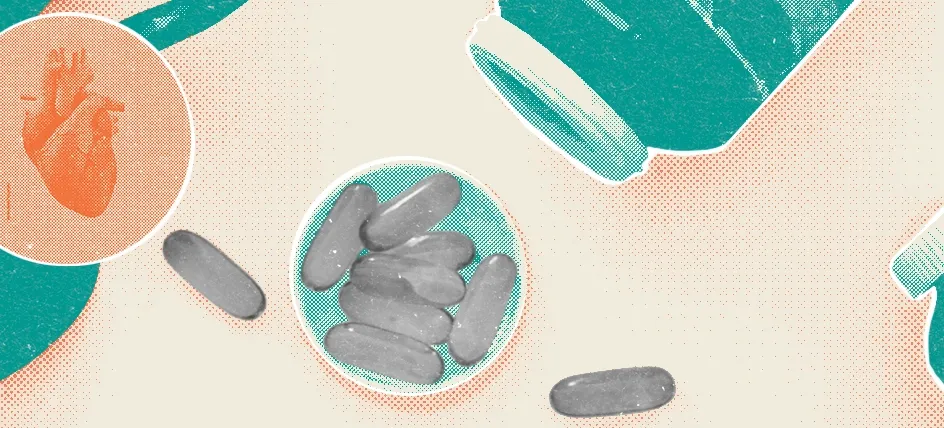Back to Health Resources
Vitamin Supplements for Heart Health - Are They Needed?

In today’s health-conscious world, many people are turning to vitamins and supplements as a way to boost their heart health. But with so many products claiming to protect against heart disease, it can be hard to know what’s truly effective. Are these supplements worth considering, or is your best bet still a heart-healthy diet?

Do Heart Vitamins and Supplements Really Work?
Research shows that heart health vitamins and supplements are not recommended and should not be relied upon to treat — or to prevent — cardiovascular disease.1 The bottom line is that no vitamin can prevent heart disease if you don't manage other risk factors like a poor diet, smoking, high cholesterol, and diabetes.2
However, that doesn’t mean these vitamins and supplements are completely useless.
Take omega-3 vitamins, for example. These fatty acids, found in fish and marine algae, are good for the heart.
The American Heart Association recommends that people without documented heart disease eat a variety of fish, particularly those rich in omega-3 fatty acids. Examples include salmon, herring, trout, halibut, and albacore tuna.
Most people can get enough omega-3 by eating two servings of fatty fish per week. However, if you don’t eat fish regularly and are unwilling to add more fish to your diet, you might consider omega-3 or fish oil capsules.
The Risk of Heart Health Vitamins and Supplements
Consuming too much of certain vitamins can actually be harmful. For example, calcium and vitamin D are commonly recommended supplements, but excess calcium and vitamin D are actually linked to an increased risk of cardiovascular disease.1 Although studies are ongoing, there's little evidence that any amount of vitamin D supplements will protect the heart.
It’s also best to avoid antioxidant vitamin supplements like A, C, and E. Scientific evidence does not support claims of their benefits for lowering blood pressure, reducing blood cholesterol, or aiding in smoking cessation.3

Another thing to keep in mind with vitamins and supplements is that what you see on the label isn't always what you get. Supplement production isn't regulated by the FDA, allowing companies to use vague claims like "good for heart health" without validation.

Your Best Bet for Heart Health
So what’s the verdict? While some vitamins and supplements can have their uses, ultimately the best way to protect your heart is to add healthy foods to your diet. Food provides the most essential nutrients your heart needs, so eat plenty of vegetables, fruits, nuts, healthy oils, whole grains, and at least two servings of fish each week. Limit your intake of salt, added sugars, trans fats, and saturated fats.
CONTRIBUTING EXPERT

Sinikka Green, MD
Dr. Green is the Medical Director and a Principal Investigator at Care Access. She is board certified in emergency medicine.
SOURCES
- Johns Hopkins Medicine. "The Truth About Heart Vitamins and Supplements." Johns Hopkins Medicine. Accessed July 1, 2024. https://www.hopkinsmedicine.org/health/wellness-and-prevention/the-truth-about-heart-vitamins-and-supplements
- Zeratsky, Katherine, R.D., L.D., "Heart Disease Prevention: Strategies to Prevent Heart Attack." Mayo Clinic. Accessed July 1, 2024. https://www.mayoclinic.org/diseases-conditions/heart-disease/expert-answers/prevent-heart-attack/faq-20058253
- American Heart Association. "Vitamin Supplements: Hype or Help for Healthy Eating?" Accessed July 1, 2024. https://www.heart.org/en/healthy-living/healthy-eating/eat-smart/nutrition-basics/vitamin-supplements-hype-or-help-for-healthy-eating
DISCLAIMER
The information provided on Care Access is intended for informational purposes only and should not be considered as a substitute for professional medical advice, diagnosis, or treatment. Always seek the advice of your physician or other qualified healthcare provider with any questions you may have regarding a medical condition. Our products and content are not intended to diagnose, treat, cure, or prevent any disease.
Explore More Health Resources

STORIES from the Heart

